Rajula & Malusahee- As go the two different version of the story

Rajula & Malusahee- As go the two different version of the story
Rajshekhar Pant, Bhimtal ( nainilive.com)- Since the time immemorial hill folk have been following the tradition of taking a holy dip in the river Saryu on the occasion of the fair of Makar Samkranti (refers both to a specific solar day in the Hindu calendar and a Hindu festival in reference to deity Surya (sun) that is observed in January every year. It marks the first day of sun’s transit into the Makara (Capricorn), marking the end of the month with the winter solstice and the start of longer days) held at Bageshwar. Once the king of Bairat, then ruled by a dynasty known to the history as Katyuries, was on visit to this temple on the said occasion with his wife namely Dharmade.
Coincidentally Sunpati Shauka of the Bhot country with his wife Ganguli Shaukyani was also there. Both these childless couples were there at the shrine of Lord Baghnath seeking his blessings to have children. They both got introduced to each other and it was decided that in case of having a son and a daughter each, they would be tying a nuptial knot between them so that the chance introduction they had, could ultimately culminate into a matrimonial bonding.

With the passage of time they both forgot this random promise made at the fair of Bageshwar. Queen Dharmade was blessed with a son, the future king of Bairat. He was given the name Malusahee. Ganguli Shaukyani in the meanwhile had a daughter in her lap by the name Rajula. In her fifteenth year she was an imperious beauty. Tender as the sorrel of wild asparagus growing on hill slopes in the month of Chaitra (April, the advent of spring season) she was fresh and sparkling like the nascent leaves of spinach that comes up in Pusa (Dec – Jan). The autumn sky laved in the soft glow of moon would remind one of her charms and her chuckle was akin to the faint light of the crescent moon veiled in clouds. Her dark eyes were more like a pair of step-well- deep and yet coquettish. A goddess from heaven, she would appear to have descended on earth enamoured of its charms. Like a lonely star in the evening sky her eyes would often scrounge across the distant horizon. During the languishing summer noon and moonlit nights, with her gaze fixed on the far off Himalayas, she would often get lost in her reveries.
Once she happened to visit the country of Bairat with her trading father.
While Sunpati Shauk was busy transacting his business, she with her flock of sheep barged into the precincts of Angeri Devi (a local version of the mother goddess). Malusahee who incidentally happened to be there, was enamoured of her charms seeing her reflection in a pool. It was love at first sight.
Following a brief sojourning in Bairat Sunpati Shauka returned to his country. Despite her severe resistance Rajula was shortly married to Chandri Vikhepal of Hun Desh (Tibetans are referred to in the Kumaoni dialect as huniyas and Tibet is called Hun Desh i.e. the country of Huns). Agitated to the core and overtaken by her passionate love for Malusahee she decided to skip silently and negotiate a lonely journey in order to meet her lover. On her way to Bairat she came across an elderly lewd person. Somehow she managed to skip his lascivious trap only to be grabbed by two young men, ready to enter a deadly duel in order to have her. Counting on the alibi that she was the daughter-in-law of the Katyuries, she succeeded in evading this and several other debacles in succession. Finally she managed
to reach the Baghnath temple at Bageshwar. While standing before the deity with her hands folded, she had the intuitive realization that the demigod was scoffing her saying that being from the land of the origin of Saryu ganga she was more like his wife’s sister. (the demigods in Hindu pantheon share human weaknesses also.) Losing her temper Rajula chastised the demigod, who in utter humiliation cursed her
saying that an endless bewilderment for the sake of her lover would be her destiny. Rajula in turn cursed the deity of losing his voice for ever. So many days had elapsed since Rajula left her home and yet another dark evening was about to fall. Crossing a bend, to her utter surprise she noticed that the settlement of Bairat with the evening lamps already light was there at a close distance. She hastened her steps in order to reach there timely. The
vision however, turned out to be elusive. It kept on receding to the background with her advancing steps. Finally it got reduced to a twinkling milky-way and vanished altogether finally. Her troubles were yet not over. Suddenly she felt that her sight was lost. Dumbfound she came to a halt. Notes of soft music from nowhere began to float round her. In all probability a religious congregation presided over by the family priest of katyuri kings at Bairat was all set to begin its evening prayers. Rajula folded her hands in the honour of the family deity of the Katyuries. Her sight got restored. By then she had understood that she hadn’t yet been absolved of the curse of Baghnath.

Rajula arrived at Bairat in the lull of night. Escaping the attention of the palace guards she did manage to reach the bedroom of Malusahee who was fast asleep. She felt like asking him if he had recognized her. She however, did control herself, recalling that an unsolicited guest happened to be the least welcomed object in any household. Subduing the light of the room she sat reclining against the bedpost. To ward off the sleep, as she was feeling drowsy due to extreme exhaustion, she undid her pearl necklace and began to string the beads. In the meanwhile Malusahee turned in his bed and his hand fell over the palm of Rajula. She became euphoric and felt more drowsy. Lineaments of far off mountains then started silhouetting as the dawn broke. It was time to depart. She quickly wrote a message suggesting that lost in his love she had come all the way from the land of Shaukas. If he loved her with the same passion, he would have to come to the jalnar region, i.e. her home in the Hun desh, to fetch her. Then only would she consider him of having suckled by her royal mother. She concluded by writing that rest was his will, devoid of passion if he had been, it was better for him to stay at Bairat- his home.
Seeing the message of Rajula the next day, Malusahee became restless. For all the sermons of the family priest and the admonitions of Dharmade, his mother, he had but one answer- despite being a girl when Rajula could come to him how as a man he could remain sitting at Bairat. He further expressed his passion for Rajula saying that the world might be full of prettier and more winsome girls but he had no desire to become a connoisseur of beauty; he would be meeting none but Rajula.
It is here that the first half of the story gets over. The part dealing with adventures of Malusahee in the lookout of Rajula constitutes the second half. Quite a few variations of this part are available. Some folk-singers windup the story with a happy ending. In such a version disguised as a Sadhu (anchorit) Malusahee reaches the Jalnar region. Using her supernatural powers Rajula hides him in her braid, though she could manage to do it for a short while only. His presence is discovered and he gets poisoned to death. His mother in her dreams sees the fate of her son and a huge army of Katyuri warriors is rallied. Garbed as wandering mendicants they proceed to raid the jalnar region. Using his spiritual powers the family priest of Katyuries restores life in Malusahee. Chandra Bikhpal of Jalnar in Hun desh meets a crushing defeat. Katyuri warriors come back to Bairat with Rajula and Malusahee. They both get married and live in proverbial happiness ever after.
In yet another version that ends tragically, the events in the second half unfold themselves in a different manner. – Seeing Malusahee adamant on going to Rajula (after she had gone leaving a message) the family priest of the Katuyuri king realized that they must have belonged to each other in their previous births also. Along with a few guards disguised as hermits he proceeded along with Malusahee to the mysterious region of Jalnar- the region known for sorcery and witchcraft. Crossing the Saru ganga (Saryu?) and Khen rivers they landed at Kankarikhal. The family priest did the ritual worship of Lord Vishnu (the sustainer God in Hindu trinity) for eleven days and invoked his mount the Garuda (a humanoid bird, large eagle,something akin to Phoenix or Brahminy kite) so as to take the astral body of Malusahee to Jalnar in order to acquaint him with the topography of the region the very night.
The next day the priest gave the semblance of Malusahee to one of the members of his contingent whose name was Panchu Bhat. Other members of the group were transformed into birds with the instructions that they would keep on perching on the leafy trees close by. Malusahee, who was awaiting the instructions of the priest, was transformed by him into a red feathered parrot with a thread of magical herb ringed around his neck. He was asked to flay in the direction of Jalnar. The priest who was to be there with him in the form of a pigeon told him that right at the entrance of the palace he would come across two giant pillars of quartz mounted by two parrots. These parrots were actually Jantri and Mantri, the twin infamous sorceress of the Jalnar region. On reaching there Malusahee was to drop the
magical thread on these pillars. On the bursting of the pillars the parrots were supposed to get reduced to ashes. He was to enter the palace only after the pillar were bust. In case the pillars remaining intact they had no other option but to go back to Bairat.
As a parrot when Malusahee was hovering above the palace, Rajula happened to notice it. Charmed by its colourful appearance she called it and forgetting everything the parrot landed on her lap. Considering that magical herb round the neck of the parrot to be some weed that probably got clung while it was stealthily feeding itself in some field, she removed it. Malusahee was now there right in front of her. Rajula was stock-still. Malusahee said smilingly that the other day a thief managed to sneak into his room. Nothing was stolen albeit the pearls of the thief were strewn all over the floor. Rajula complained that only the pearls and not her tears could be noticed by Malusahee. Suddenly Malusahee became aware of the grave situation they were in. He reproached Rajula in a mild manner for removing the magical herb from his neck since it had divested him of the wings he had, when in the form of a parrot. Changing the course of the conversation Rajula informed her that she was with her in-laws those days. Her husband with his brother had then gone out for hunting. She asked
Malusahee if he had the moral courage to ask from them whatever he wanted. She then offered some food to him. While eating Malusahee noticed the unusual glare of the ring she had on her finger.
Avoiding in a tacit manner any revelation with regard to that ring, she said that quite unintentionally she had served food to Malusahee in the plate of her husband.Waking, as if from a trance, Malusahee told Rajula that they were getting late and must proceed. They tried to elope secretly and arrived at Kankarikhal. Contemplating on their fate Rajula then arrived at a conclusion that death alone could unite them forever. While Malusahee was lost gazing at the mist hanging over the distant mountains, she informed him of the imminent arrival of her husband and his men, adding further that her ring was invested with the magical power to reveal her exact location to her husband. She however, was elated to think that at the fag end of their lives they could have each other. Arriving at the scene her husband and his men challenged Malusahee, who resisted them gallantly till his last breath.
In the concluding scene the bodies of Rajula and Malusahee are seen lying at a close distance. Nature with its serene ambiance probably was sympathetic to the dead lovers. A whiff of mountain wind carries with it the other end of the stole of dead Rajula and splays it on the still frame of Malusahee.


राजशेखर पंत हिंदी और अंग्रेजी भाषा के उत्कृष्ट लेखकों में गिने जाते हैं. आपका अधिकतर लेखन कार्य हिमालय क्षेत्र के पर्यावरण, नदियों के अद्ध्यन , हिमालयी संस्कृति एवं जीवन पर केंद्रित रहा है. आपके लेख कई राष्ट्रीय एवं अंतर्राष्ट्रीय पत्र पत्रिकाओं में प्रकाशित हो चुके हैं. आपको वर्ष २००७, २००८ , २०१३ और २०१५ में विभिन्न विषयों पर कार्य एवं शोध लेखन के लिए सेंटर ऑफ साइंस एंड एनवायरनमेंट , नई दिल्ली की प्रतिष्ठित मीडिया फ़ेलोशिप प्रदान हो चुकी है , जिसमे भारत एवं एशिया पसिफ़िक क्षेत्र के पत्रकारों को विभिन्न विषयों पर शोध एवं रिपोर्टिंग लेखन के लिए प्रदानं किया जाता है। आप लेखक , पत्रकार, के साथ साथ एक बेहतरीन डाक्यूमेंट्री निर्माता भी हैं , और आपकी कई डॉक्यूमेंट्री फिल्म्स को पुरुस्कृत भी किया जा चूका है. आपका वर्तमान निवास भीमताल , जिला नैनीताल, उत्तराखंड में है.
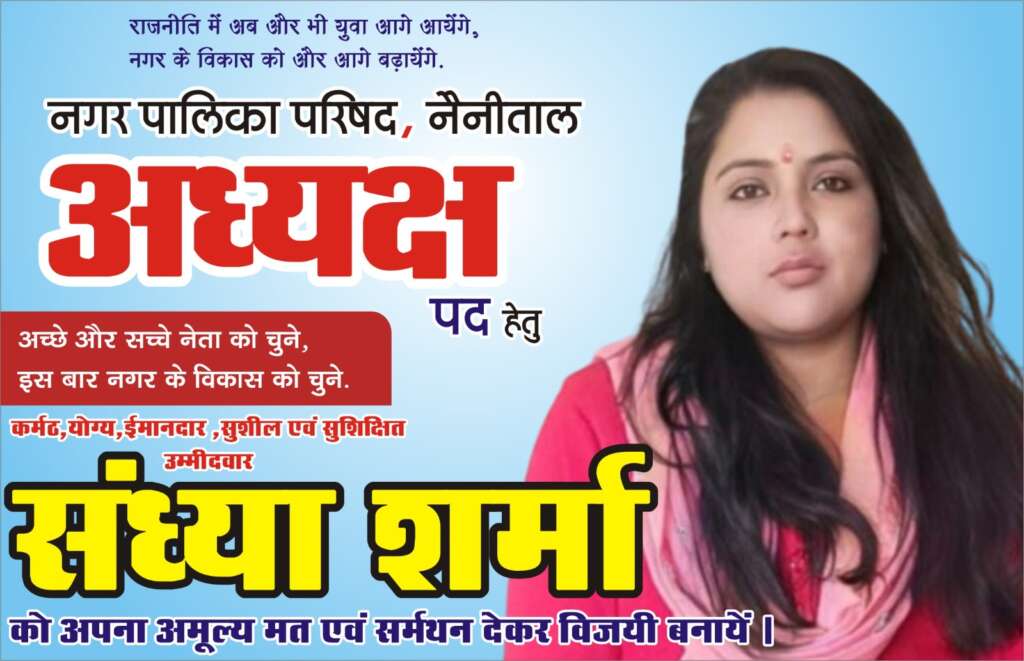

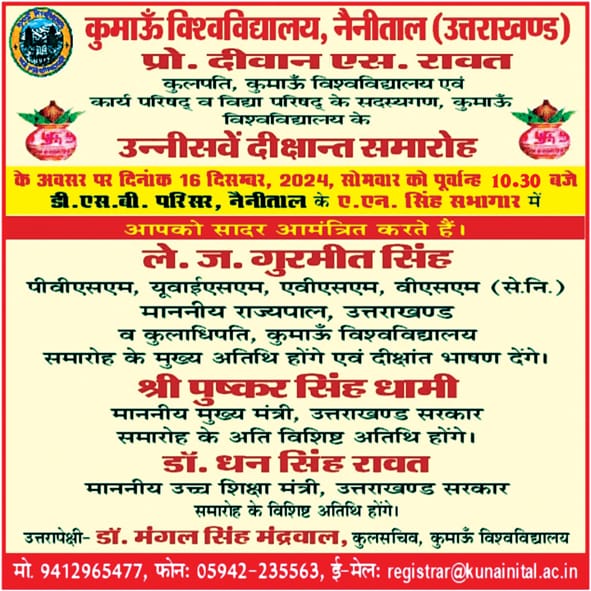

नैनी लाइव (Naini Live) के साथ सोशल मीडिया में जुड़ कर नवीन ताज़ा समाचारों को प्राप्त करें। समाचार प्राप्त करने के लिए हमसे जुड़ें -

Naini Live is a news portal which provides news across Uttarakhand and Madhya Pradesh. We do provide advertisement services as well.

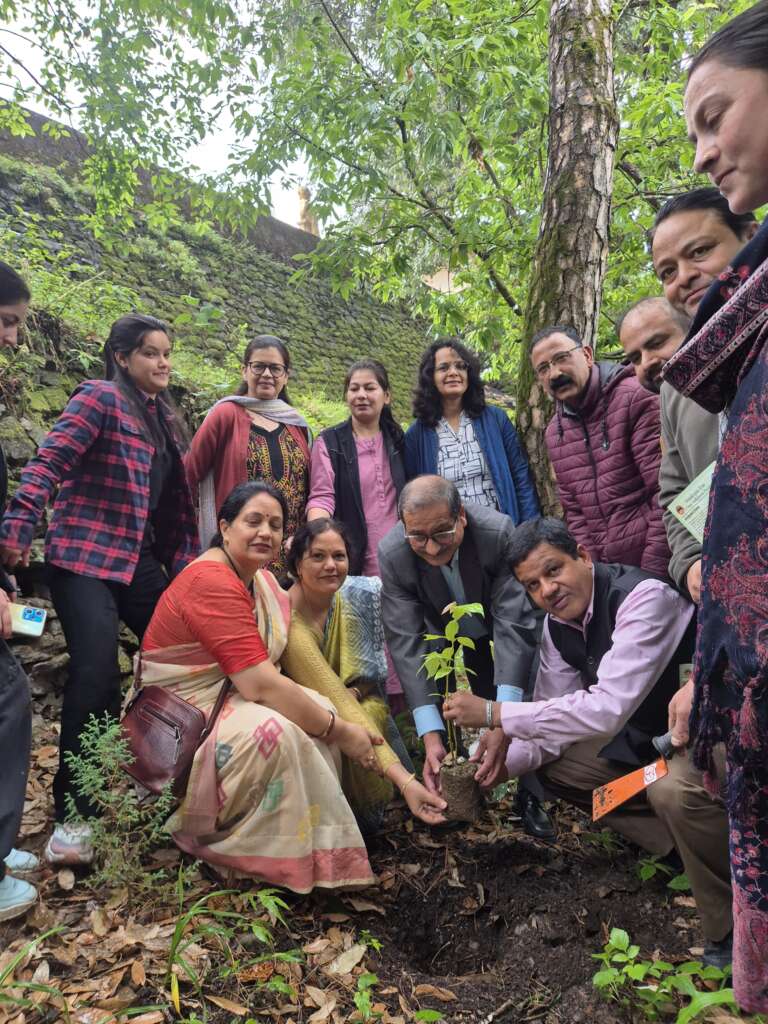 कुमाऊं विश्वविद्यालय के वनस्पति विज्ञान विभाग द्वारा विश्व पर्यावरण दिवस के अवसर पर आयोजित हुआ संवाद कार्यक्रम
कुमाऊं विश्वविद्यालय के वनस्पति विज्ञान विभाग द्वारा विश्व पर्यावरण दिवस के अवसर पर आयोजित हुआ संवाद कार्यक्रम 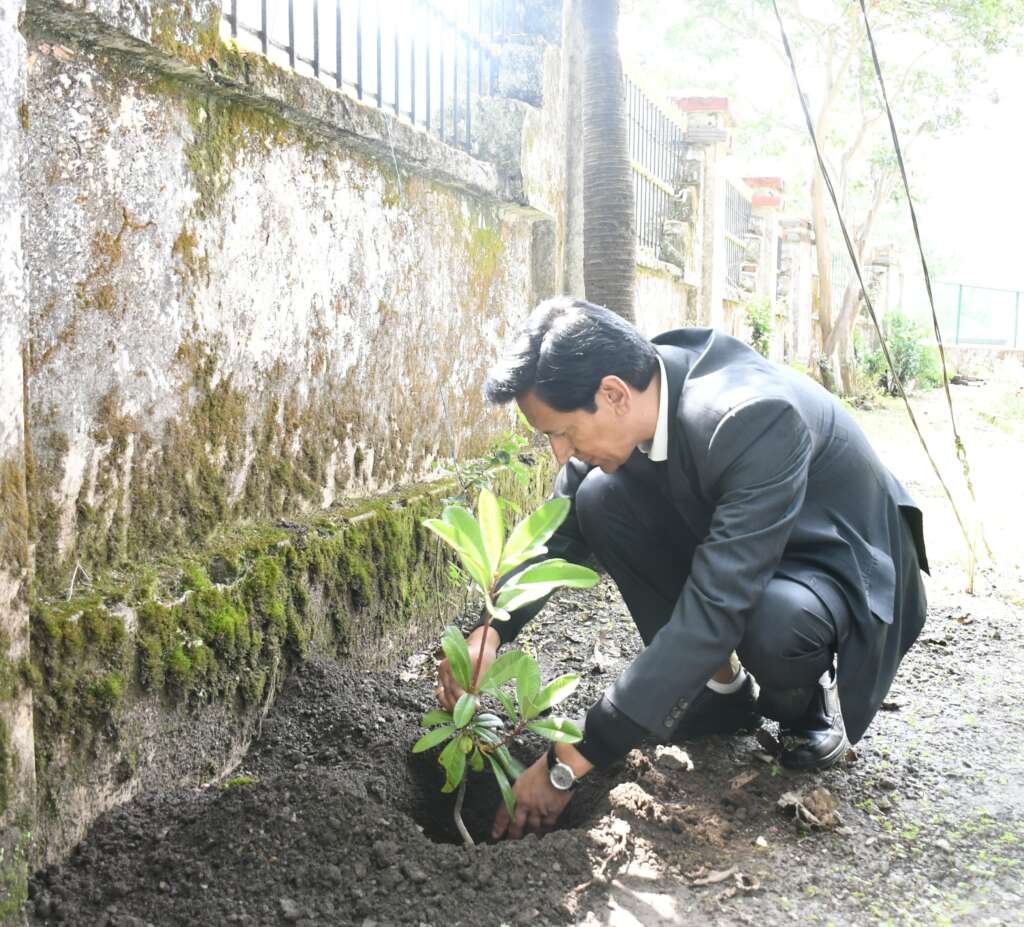 कुमाऊं आयुक्त दीपक रावत ने किया कमिश्नरी कार्यालय नैनीताल में पौधारोपण
कुमाऊं आयुक्त दीपक रावत ने किया कमिश्नरी कार्यालय नैनीताल में पौधारोपण 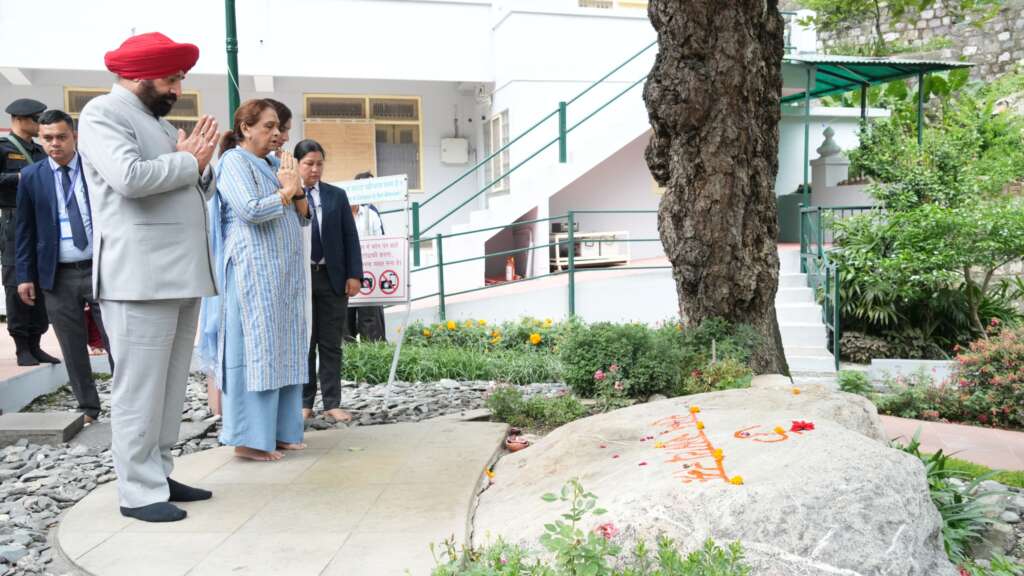 राज्यपाल ने किए कैंची धाम पहुँचकर बाबा नीम करौरी महाराज के दर्शन
राज्यपाल ने किए कैंची धाम पहुँचकर बाबा नीम करौरी महाराज के दर्शन 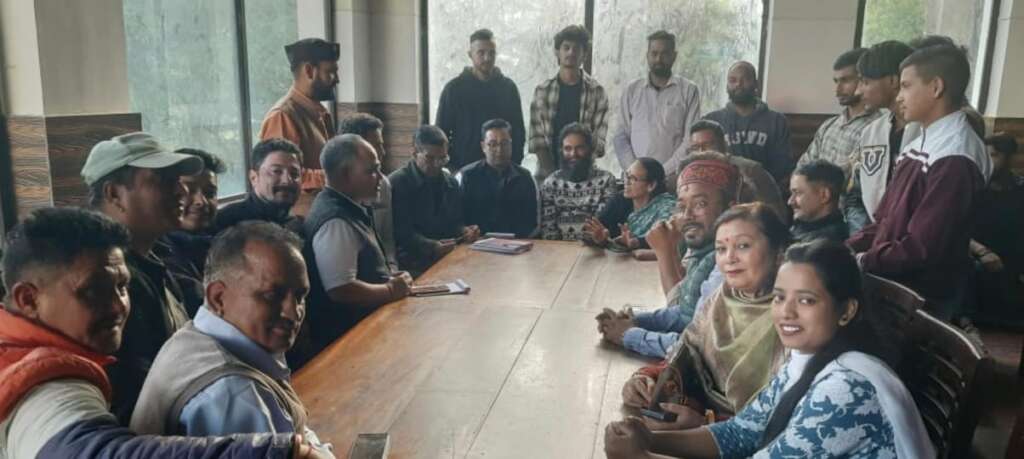 मुख्यमंत्री श्री पुष्कर सिंह धामी जी के स्वागत हेतु मंडल बैठक सम्पन्न, स्व. एन.के. आर्या मेमोरियल क्रिकेट कप 2025 के समापन व पुरस्कार वितरण कार्यक्रम की रूपरेखा तय
मुख्यमंत्री श्री पुष्कर सिंह धामी जी के स्वागत हेतु मंडल बैठक सम्पन्न, स्व. एन.के. आर्या मेमोरियल क्रिकेट कप 2025 के समापन व पुरस्कार वितरण कार्यक्रम की रूपरेखा तय 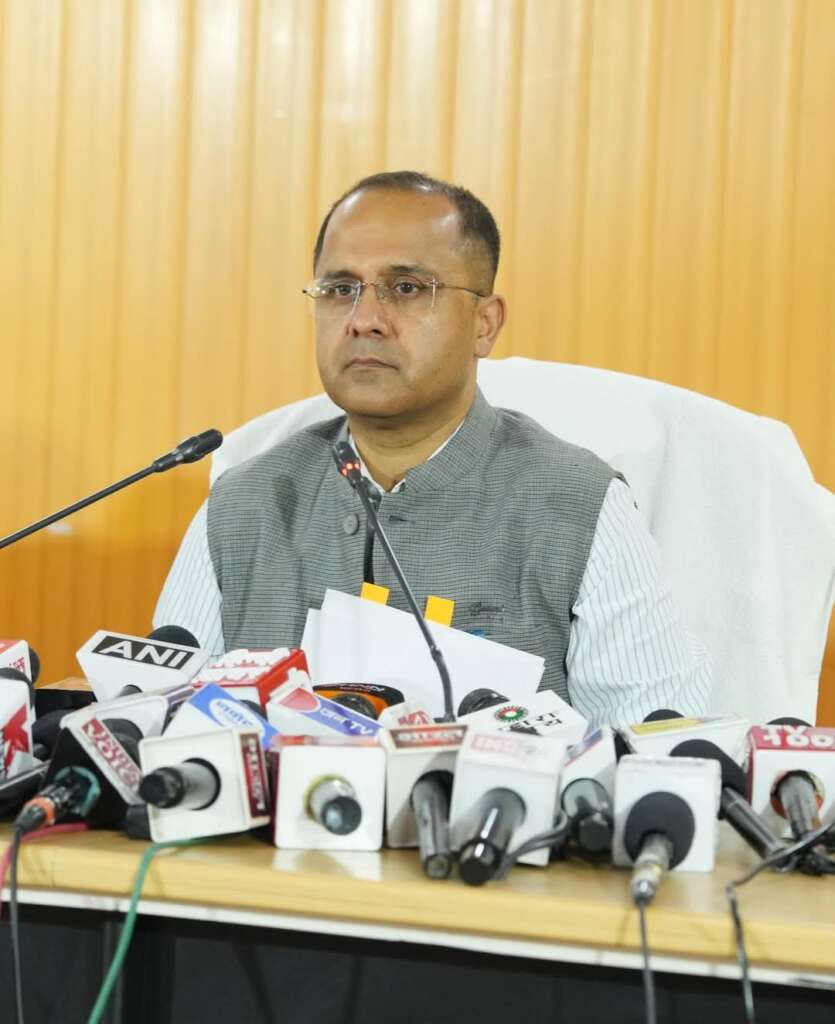 उत्तराखंड कैबिनेट ने लिए राज्य हित में कई अहम फैसले
उत्तराखंड कैबिनेट ने लिए राज्य हित में कई अहम फैसले